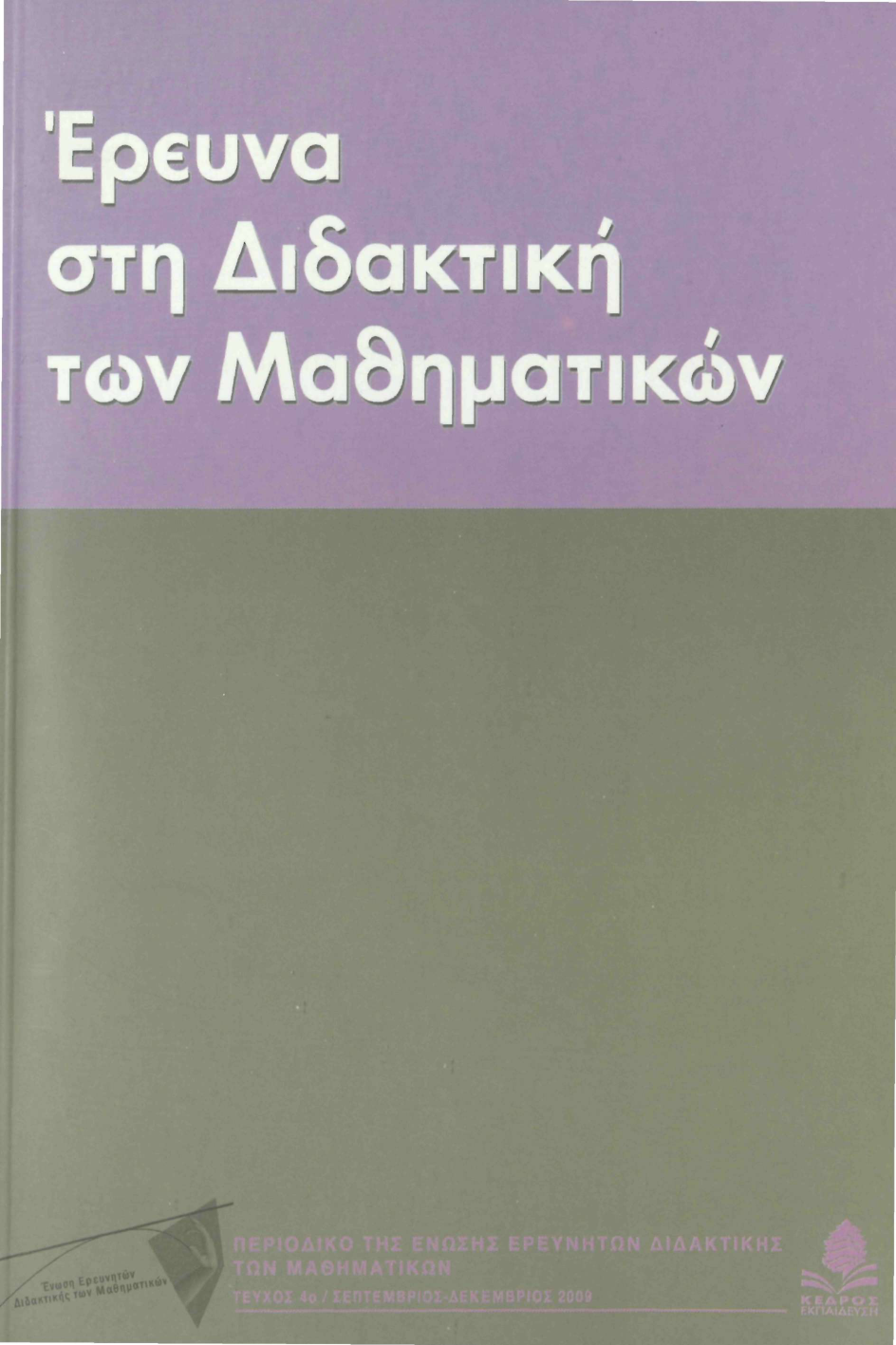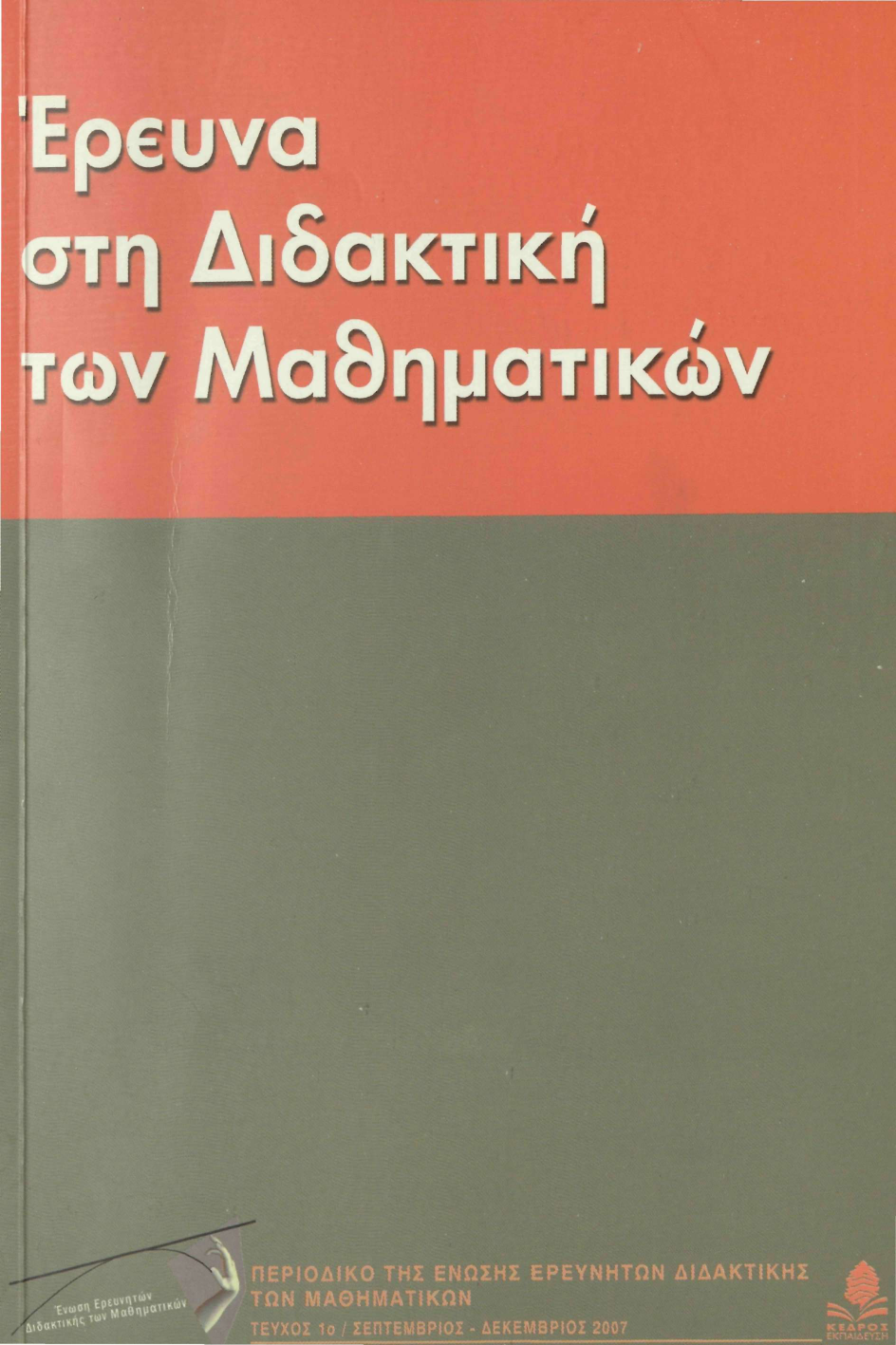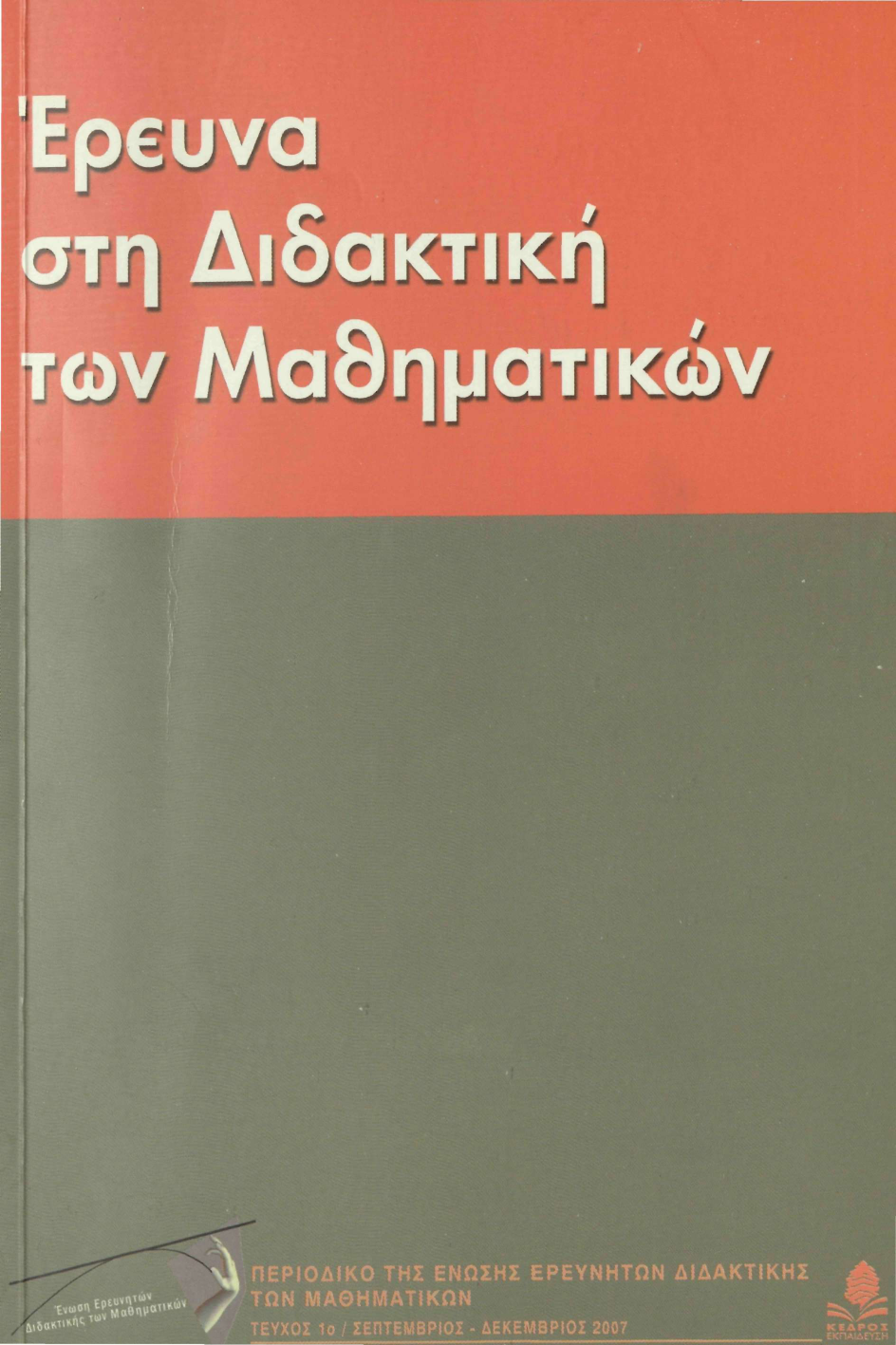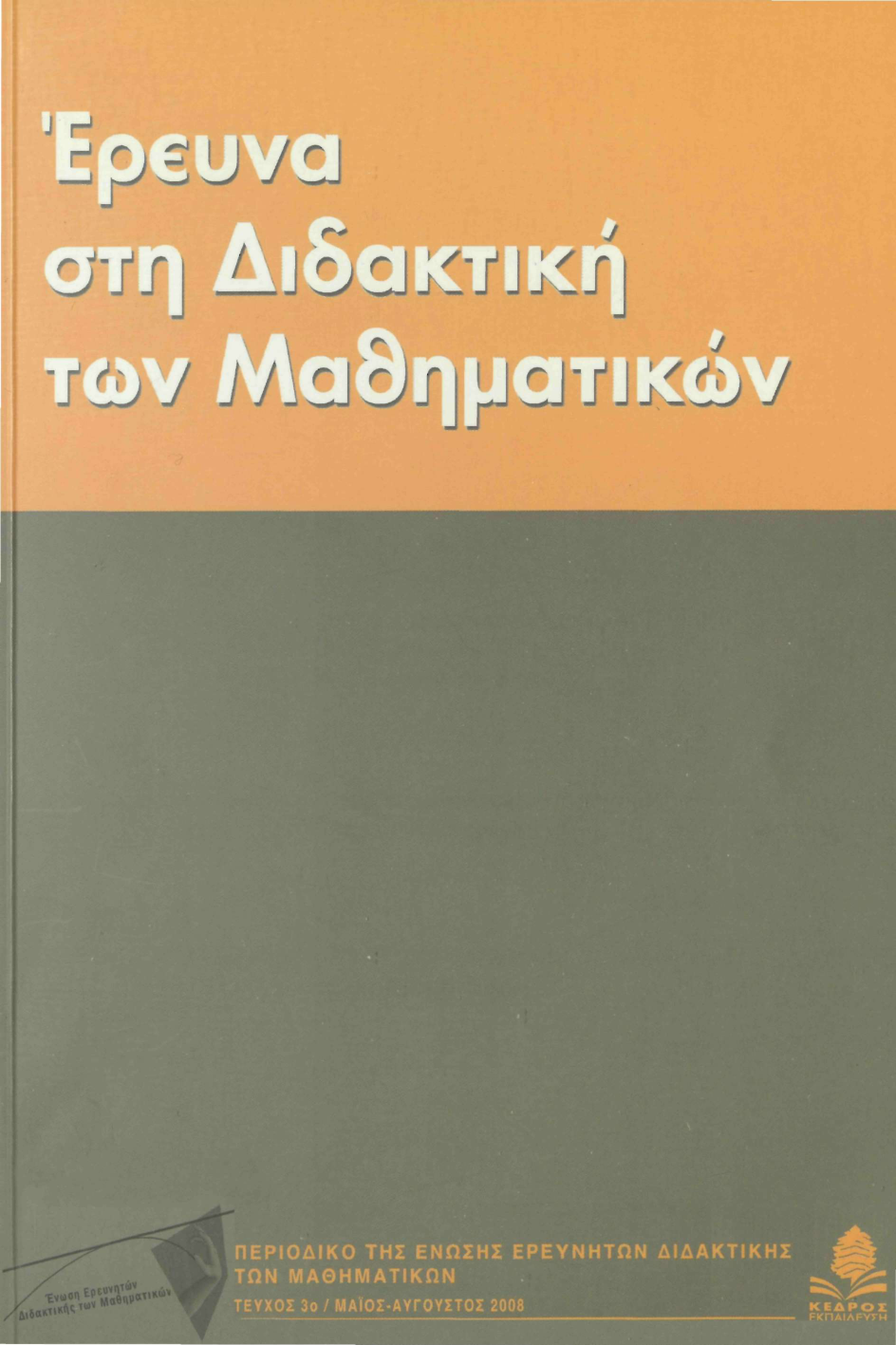ΟΙ ΕΠΙΣΤΗΜΟΛΟΓΙΚΕ! ΠΕΠΟΙΘΗΣΕΙΣ ΤΩΝ ΔΑΣΚΑΛΩΝ, ΟΙ ΑΝΤΙΛΗΨΕΙΣ ΤΟΥΣ ΓΙΑ ΤΗ ΔΙΔΑΣΚΑΛΙΑ ΚΑΙ ΟΙ ΠΕΠΟΙΘΗΣΕΙΣ ΤΩΝ ΜΑΘΗΤΩΝ ΤΟΥΣ
Résumé
Οι επιστημολογικές πεποιθήσεις (ΕΠ) αναφέρονται στη φύση της γνώσης και στην απόκτηση της. Είναι υποσύστημα των πεποιθήσεων ενός ατόμου που σύμφωνα με την έρευνα επηρεάζουν τις επιλογές και τ?/ συμπεριφορά του. Έχει βρεθεί ότι οι ΕΠ του δασκάλου σχετίζονται με τις διδακτικές του επιλογές καθώς και με τις ΕΠ και την επίδοση του μαθητή. Στο άρθρο αυτό εξετάζονται οι ΕΠ και οι αντιλήψεις των δασκάλων δημοτικής εκπαίδευσης για τη διδασκαλία των μαθηματικών, η μεταξύ τους σχέση καθώς και η σχέση των ΕΠ των δασκάλων με τις ΕΠ των μαθητών τους. Από την παραγοντική ανάλυση των δεδομένων που συνελέγησαν προέκυψε ότι οι ΕΠ των Κυπρίων δασκάλων αποτελούνται από πέντε διαστάσεις, που διαφέρουν ανάλογα με τα έτη υπηρεσίας και τις σπουδές τους και σχετίζονται με τις αντιλήψεις τους για τη διδασκαλία. Βρέθηκε επίσης ότι υπάρχει θετική συσχέτιση ανάμεσα στις ΕΠ των δασκάλων και τις ΕΠ των μαθητών τους.
Article Details
- Comment citer
-
Φιλίππου (Giorgos Philippou) Γ., Μονογυιού (Annita Monogiou) Α., & Καουρή Z. (2018). ΟΙ ΕΠΙΣΤΗΜΟΛΟΓΙΚΕ! ΠΕΠΟΙΘΗΣΕΙΣ ΤΩΝ ΔΑΣΚΑΛΩΝ, ΟΙ ΑΝΤΙΛΗΨΕΙΣ ΤΟΥΣ ΓΙΑ ΤΗ ΔΙΔΑΣΚΑΛΙΑ ΚΑΙ ΟΙ ΠΕΠΟΙΘΗΣΕΙΣ ΤΩΝ ΜΑΘΗΤΩΝ ΤΟΥΣ. Έρευνα στη Διδακτική των Μαθηματικών, (4), 39–71. https://doi.org/10.12681/enedim.18825
- Rubrique
- Άρθρα

Ce travail est disponible sous la licence Creative Commons Attribution 4.0 International .
Οι συγγραφείς των άρθρων που δημοσιεύονται στο περιοδικό διατηρούν τα δικαιώματα πνευματικής ιδιοκτησίας επί των άρθρων τους, δίνοντας στο περιοδικό το δικαίωμα της πρώτης δημοσίευσης. Άρθρα που δημοσιεύονται στο περιοδικό διατίθενται με άδεια Creative Commons BY και σύμφωνα με την άδεια μπορούν να χρησιμοποιούνται ελεύθερα, με αναφορά στο/στη συγγραφέα και στην πρώτη δημοσίευση.





